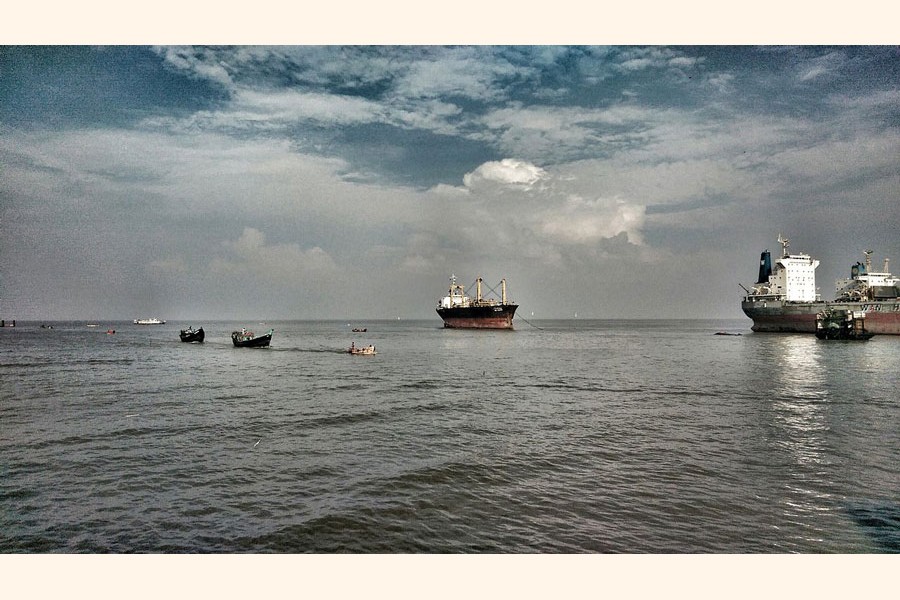Govt to form authority to execute maritime codes
Safe handling of risky, bulk cargoes aimed at

Published :
Updated :

The government is going to form a "competent authority" to regulate safe handling of dangerous goods and solid bulk cargoes carried through seaways, officials said.
The authority will be tasked with the responsibility of strictly implementing the codes on International Maritime Dangerous Goods (IMDG) and International Maritime Solid Bulk Cargoes (IMSBC), they added.
At present, none is solely responsible to look after implementation of the codes, which is very crucial to comply with the international maritime laws and safely handle dangerous cargoes.
In the recent years a number of fire incidents took place in the off docks and port yards - leading to loss of scores of lives and destroying goods worth millions of dollars - raising repeated calls for proper implementation of the maritime safety codes.
The Department of Shipping (DoS) has recently taken a move to form the authority to implement the codes alongside revising the standard operating procedure for dangerous and solid bulk cargoes.
The Ministry of Shipping will convene a meeting in this regard with the stakeholders concerned early next month, the officials also said.
The IMDG Code was developed as an international code for maritime transport of dangerous goods in packaged form, in order to enhance and harmonise safe carrying of dangerous goods and to prevent environment pollution.
The code sets out in detail the requirements applicable to each individual substance, material or article, covering matters such as packing, container traffic and stowage, with particular reference to segregation of incompatible substances.
The aim of the IMSBC Code is to facilitate safe stowage and shipment of solid bulk cargoes by providing information on the dangers associated with shipment of certain types of solid bulk cargoes and instructions on the procedures to be adopted when shipment of solid bulk cargoes is contemplated.
The prime hazards associated with shipment of solid bulk cargoes are those relating to structural damage due to improper cargo distribution, loss or reduction of stability during a voyage, and chemical reactions of cargoes.
DoS Director General Commodore Mohammad Maksud Alam told the FE on Monday that the safeguard mechanism followed until now is not strong enough for safe handling of dangerous and solid bulk goods.
"We want to implement the safeguard measures in line with the international rules."
He said according to a law of 1953, the naval chief of staff of Bangladesh is presently the designated authority to look after handling of dangerous and solid bulk goods that enter into the country and go out from here. His representative inspects dangerous cargoes when they reach the ports.
Mr Alam noted that now use of dangerous chemicals has increased, and so work relating to their monitoring has also enhanced.
"Now we are working on how to effectively implement the safety codes in handling dangerous cargoes," he added.
In June last year, nearly 50 people died and hundreds injured in a deadly fire and numerous blasts in hydrogen peroxide-laden containers in BM Container Depot Ltd, a Netherlands-Bangladesh joint venture off dock, in Chittagong.
Following the incident, export of hydrogen peroxide from Bangladesh remained suspended for months - depriving the country of earning millions of dollars.
syful-islam@outlook.com


 For all latest news, follow The Financial Express Google News channel.
For all latest news, follow The Financial Express Google News channel.